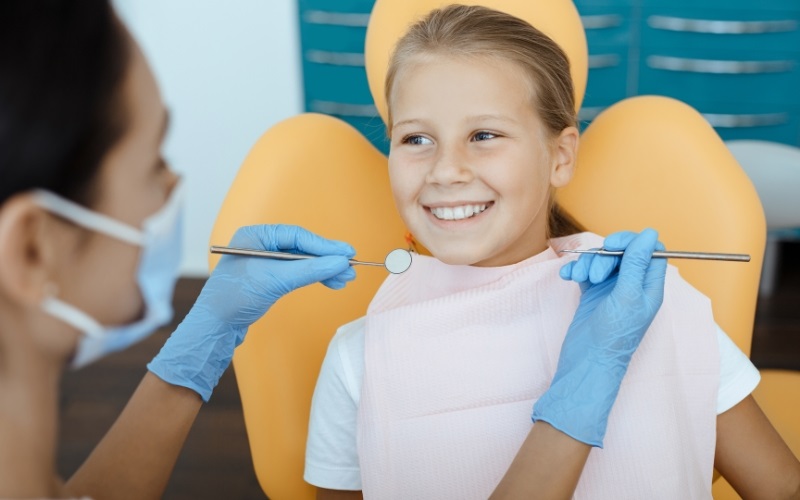Dental emergencies never happen at a convenient time. They’re unexpected, often painful, and can be quite scary. Understanding what constitutes a dental emergency is crucial to getting the necessary treatment promptly. Immediate care is the first line of defence in preserving oral health during such unexpected situations. It’s about understanding how to react, alleviate pain and protect the tooth or gum involved until professional dental help can be received. Dental emergencies can range from a cracked tooth, knocked-out tooth, severe toothache, or even an abscess or infection. Timely interventions not only aid in pain management but also minimise further damage. Remember, time is of the essence, and immediate care is key.
Recognising a Dental Emergency
It’s essential to differentiate between a dental issue that can wait and a genuine dental emergency. Severe pain, swelling, bleeding, loose or knocked-out teeth, or injury to the mouth are clear signs of a dental emergency. Moreover, any persistent discomfort or abnormal change in your oral health should not be dismissed. A damaged tooth, for instance, may not cause immediate pain, but prompt attention can prevent further complications. Similarly, swelling could indicate an infection, which if left untreated, could spread and cause severe health issues. It’s always wise to seek professional advice if you’re unsure. Always remember, recognising a dental emergency is the first step in managing it effectively.
Steps to Take in a Dental Emergency
In a dental emergency, staying calm is paramount. First, assess the situation and try to alleviate pain, if any. If a tooth has been knocked out, carefully handle it by the crown, rinse it gently without scrubbing, and if possible, place it back in its socket. If not feasible, keep it moist in milk or a tooth preservation product and head to the dentist. In case of a cracked tooth, rinse the mouth with warm water and use a cold compress to manage swelling. Remember not to apply any painkillers directly to gums as it could burn the tissue. For objects caught between teeth, try to gently remove them with dental floss. However, never use a sharp instrument. In all these scenarios, seeking immediate professional help, preferably from an emergency dentist, is vital.
Importance of Quick Response in Dental Emergencies
A swift response in dental emergencies could mean the difference between saving and losing a tooth. It’s not just about attending to the pain or discomfort; it’s also about preventing further complications. For instance, responding promptly to a knocked-out tooth by preserving it properly could enable a dentist to reimplant it. A quick response to a dental infection could prevent it from spreading and causing more severe health issues. Furthermore, immediate care can also minimise the risk of long-term damage, reducing the need for extensive treatments later on. Hence, understanding the need for a quick response in dental emergencies is critical. It ensures effective management of the situation, paving the way for optimal dental health recovery.
Role of an Emergency Dentist
An emergency dentist plays a crucial role in managing dental emergencies effectively. They’re trained to quickly diagnose and treat a wide range of dental issues that require immediate attention. From severe toothaches to knocked-out teeth, they’re equipped with the knowledge and skills to provide immediate relief and prevent further damage. Unlike regular dental appointments, an emergency dentist is often available outside normal working hours, providing access to urgent dental care when you need it most. They not only provide the necessary treatment but also offer advice on managing dental health post-emergency. Remember, in a dental emergency, every moment counts, and an emergency dentist is your go-to professional for immediate, effective care.
Emergency Dentist Gordon: Providing Immediate Care
In the heart of Gordon, there’s a dedicated emergency dentist service ready to provide immediate care in case of a dental emergency. Understanding the urgency, they prioritise these instances, ensuring quick access to professional care. Using advanced techniques and equipment, they are well-prepared to handle a wide range of dental emergencies, from severe toothaches to knocked-out teeth. This emergency dentist Gordon service is committed to providing prompt, quality care, helping to alleviate pain, prevent further damage and set you on the path to recovery. The team’s commitment to patient care goes beyond the immediate treatment, extending to advice and support for managing post-emergency dental health. In Gordon, you’re never far from professional, reliable emergency dental care.
Preventing Dental Emergencies: A Proactive Approach
While it’s impossible to predict when a dental emergency will occur, a proactive approach can significantly reduce the risk. Regular dental check-ups, proper oral hygiene routine, wearing protective gear during sports and avoiding hard foods that can crack or break teeth can all contribute to preventing dental emergencies. Healthy dental habits not only keep your teeth and gums in good shape but also help identify potential issues before they escalate. A proactive approach is about being aware of your dental health and taking necessary steps to maintain it. Remember, prevention is always better than cure, especially when it comes to dental health. So, take charge of your oral health today, and you might save yourself from a dental emergency tomorrow.
Any surgical or invasive procedure carries risks. Before proceeding you should seek a second opinion from an appropriately qualified health practitioner.

